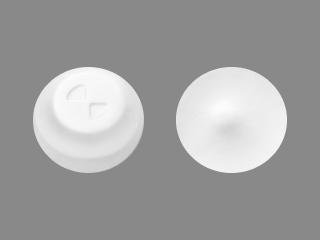Nurtec ODT Disease Interactions
There are 2 disease interactions with Nurtec ODT (rimegepant).
Rimegepant (applies to Nurtec ODT) renal impairment
Major Potential Hazard, Moderate plausibility. Applicable conditions: Renal Dysfunction
Rimegepant should be avoided in patients with ESRD as it not been studied in patients with CrCl less than 15 mL/min or among patients on dialysis. No dosage adjustment is necessary for patients with mild to severe renal impairment. A single-dose pharmacokinetic study showed exposure to rimegepant in patients with mild or severe renal impairment was not clinically meaningful different compared to normal subjects, however, exposure in subjects with moderate renal impairment was approximately 40% higher. In healthy male subjects, 78% of a radiolabeled dose was excreted in the feces and 24% in the urine.
Rimegepant (applies to Nurtec ODT) severe hepatic impairment
Major Potential Hazard, Moderate plausibility. Applicable conditions: Liver Disease
Rimegepant should be avoided in patients with severe hepatic impairment. A dedicated pharmacokinetic study has shown an approximately 2-fold increased exposure to a single-dose of rimegepant in patients with severe hepatic impairment (Child-Pugh class C). There were no clinically meaningful differences in rimegepant exposure with mild (Child-Pugh class A) and moderate hepatic impairment (Child-Pugh class B).
Switch to professional interaction data
Nurtec ODT drug interactions
There are 172 drug interactions with Nurtec ODT (rimegepant).
Nurtec ODT alcohol/food interactions
There is 1 alcohol/food interaction with Nurtec ODT (rimegepant).
More about Nurtec ODT (rimegepant)
- Nurtec ODT consumer information
- Check interactions
- Compare alternatives
- Pricing & coupons
- Reviews (339)
- Drug images
- Side effects
- Dosage information
- Patient tips
- During pregnancy
- Support group
- FDA approval history
- Drug class: CGRP inhibitors
- Breastfeeding
- En español
Related treatment guides
Drug Interaction Classification
| Highly clinically significant. Avoid combinations; the risk of the interaction outweighs the benefit. | |
| Moderately clinically significant. Usually avoid combinations; use it only under special circumstances. | |
| Minimally clinically significant. Minimize risk; assess risk and consider an alternative drug, take steps to circumvent the interaction risk and/or institute a monitoring plan. | |
| No interaction information available. |
See also:
Further information
Always consult your healthcare provider to ensure the information displayed on this page applies to your personal circumstances.


